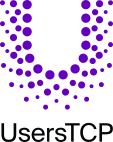2022/23 Annual Report
The Annual Report provides an overview of the work and key achievements of the TCP and its Tasks during the 2022/23 year.
Factsheet: Creating energy technologies, that are meaningful and usable for all
How technology developers can contribute to making sustainable energy supply more equal in terms of accessibility to ensure the participation of all.
Gender, expertise and control in Dutch residential smart grid pilots
The paper discusses the gendered differences in the build-up of interest and expertise in household smart grids, in connection to experiences of control, comfort, safety and trust.
Austria’s Integrated Energy and Climate Plan, Mission 2030, Langfriststrategie 2050, and Regierungsprogramm 2020-2024: A critical analysis
As part of the Gender and Energy Task, a critical analysis of
the three Austrian policies and plans through an energy user’s perspective reflecting on
the incorporation of social/gender justice has been conducted.
Policy Brief – Social License to Automate
In its first phase, the Social License to Automate Task undertook original research involving 26 residential demand-side automation projects across Australia, Austria, the Netherlands, Norway, Sweden and Switzerland.
Behavioural Energy Policy Toolkit is now live
The Platform has published an online toolkit to help civil servants apply insights from behavioural science to demand-side energy programmes. Click on “Read more” to access the toolkit!
Gender Equality and Social Inclusion (GESI) White Paper – Gender and Technology: The Case of the Energy Sector
This paper discusses how energy policies are gender blind and as a result, their lowered effectiveness and unintended effects.
INATBA/GO-P2P Task Force final report
Peer-to-Peer Energy Trading Task Force DLT Standardisation Efforts in Peer-to-Peer Energy Trading Applications:Expert Interviews and Lessons Learned.
GO-P2P Subtask 3 – P2P, CSC and TE: A Systematic Literature Review of Local Energy Market Models
Fundamental changes are transforming energy markets globally. Distributed energy resources (DERs), such as photovoltaic (PV) and wind generators, and storage devices are being installed at ever increasing rates.
2021 Annual Report
The 2021 Annual Report is now available to view. This report provides an overview of the activities and outputs of the UsersTCP and its Tasks during 2021.
Characterising HTR Energy Users: A Literature Review
This e-Book is based on a landscape, literature and stakeholder assessment and includes insights from 120 survey responses of HTR experts around the world, as well as 50 in-depth
The Building Blocks of Behaviour Change – HTR Task Research Process
The HTR Task in collaboration with our Project Partners the See Change Institute, have co-created and tested a research framework to guide our Task, to use for ex-post case
GO-P2P Subtask 1 – Impact of Local Energy Markets Integration in Power Systems Layer: A Comprehensive Review
In June 2018, the European Union (EU) agreed a legal framework for prosumership as part of the recast of the Renewable Energy Directive (RED II). This puts consumers in the centre of energy transition and introduces Citizen Energy Communities and Renewable Energy Communities.
GO-P2P Subtask 4 – Social and economic value in emerging decentralized energy business models: A critical review
In recent years, numerous studies have explored the opportunities and challenges for emerging decentralized energy systems and business models. However, few studies have focused specifically on the economic and
Are we getting the best out of Smart Home Technologies. The Role of Usability.
Smart Home Technologies (SHTs) are believed to have potential to support reduced carbon emissions. These technologies can include, but are not limited to, smart heating, lighting and cooling, electric vehicle charging and a broad variety of smart domestic appliances.
Social License to Automate: Emerging Approaches to Demand Side Management – Executive Summary
The Social License to Automate Task has investigated the social dimensions of user engagement with automated technologies in energy systems to understand how householder trust to automate is built and maintained in different jurisdictions and settings.
Social License to Automate: Emerging Approaches to Demand Side Management
A significant energy transition is underway across the participating countries in this project, and indeed beyond. In each country, this transition involves significant challenges associated with the relationship between transmission, distribution, and consumption of energy.
2020 Annual Report
2020 has been challenging, but if it has proved anything, it is that social and behavioural change are important and achievable in the face of a crisis. It was also the year in which the IEA launched its Global Commission on People-Centred Clean Energy and the World Energy Council declared the 2020s to be the decade of the customer.
GO-P2P Subtask 2 – P2P, CSC and TE: A Survey on Hardware, Software and Data
Global population is expected to grow significantly over the next 30 years, expecting to hit almost 11 billion by 2050, coupled with the electrification of heating, cooling and transport, this will have a profound effect on electricity consumption and demand.

